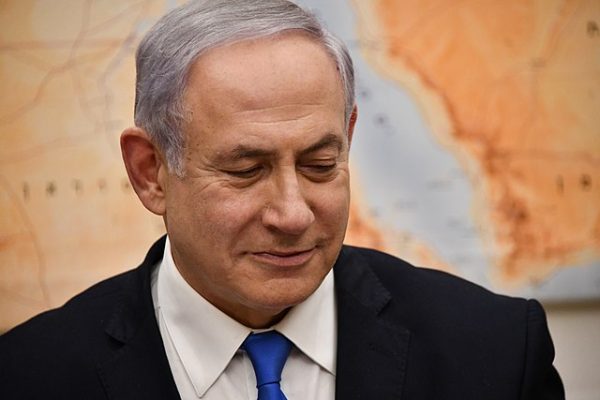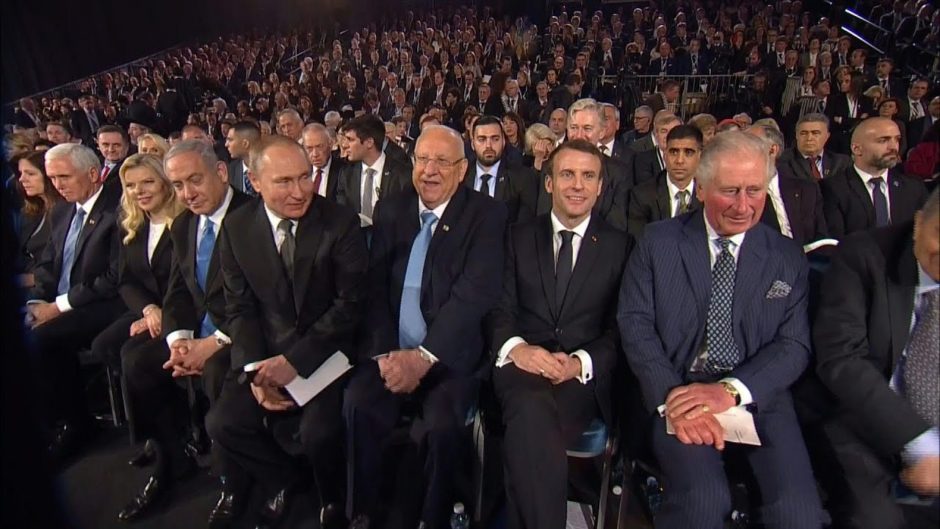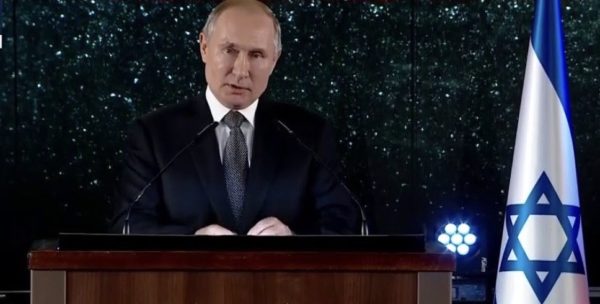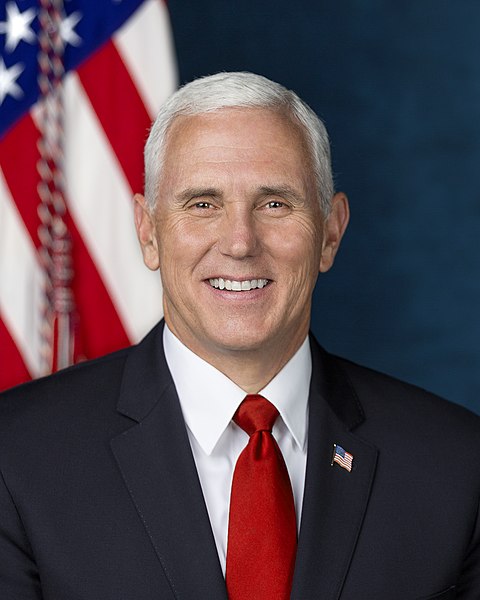The leaders and representatives of more than 40 countries descended on Israel to attend the fifth World Holocaust Forum, which took place at Yad Vashem in Jerusalem on January 23, but only a handful were permitted to address the conference.
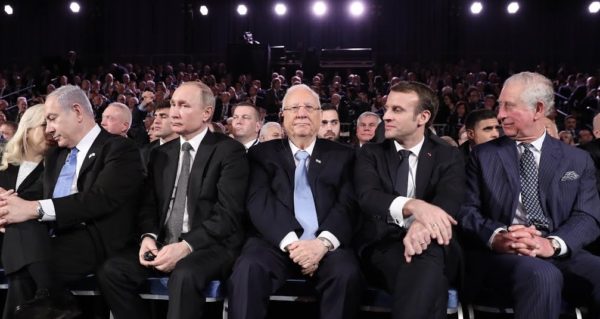
The speakers represented the four Allied powers of World War II — the United States, Russia, France and Britain — and the nation that ignited that conflict and planned and implemented the Holocaust, Germany.
As host, Israeli Prime Minister Benjamin Netanyahu delivered a speech as well.
Taken together, what we heard at the conference, which marked the 75th anniversary of the liberation of the Auschwitz-Birkenau extermination camp in Poland, were the words of remembrance, caution and atonement.
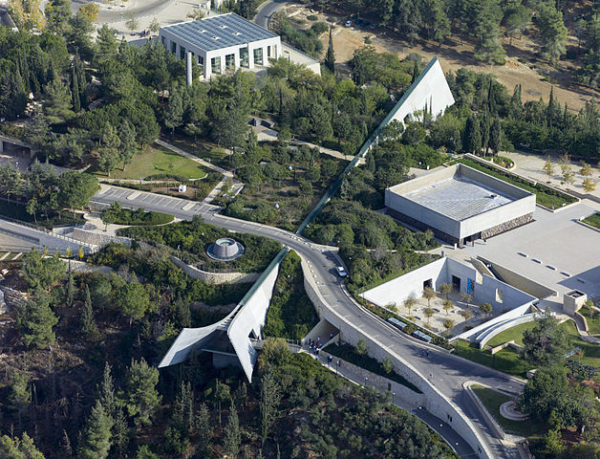
Describing the Holocaust as “one of the most terrible chapters of human history,” Russian President Vladimir Putin said that remembering it “is our shared responsibility to the past and the future.”
Putin made an important point by saying that the perpetrators were assisted by accomplices. “They were often crueler than their masters,” he said. “Death factories and concentration camps were served not only by the Nazis, but also by their accomplices in many European countries.”
As he put it, “We must never cease to be appalled, nor moved by the testimony of those who lived through it. The lessons of the Holocaust are searingly relevant to this day. Seventy-five years after the liberation of Auschwitz-Birkenau, hatred and intolerance still lurk in the human heart, still tell new lies, adopt new disguises, and still seek new victims.”
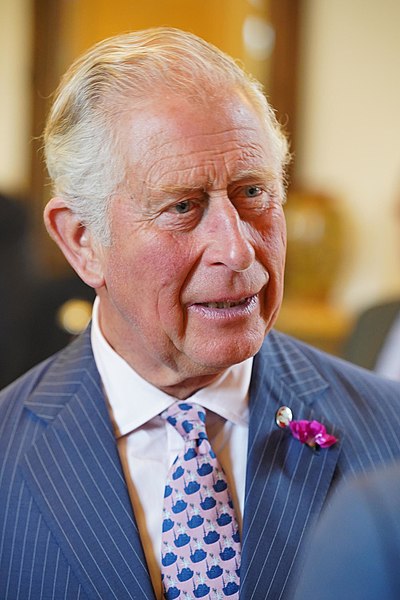
Mutual understanding and respect are important but not enough, he noted, urging decision-makers to “be fearless in confronting falsehoods and resolute in resisting words and acts of violence.”
Presumably, “falsehoods” include Holocaust denial, a form of antisemitism, and “acts of violence” can mean antisemitic attacks on synagogues and Jewish institutions, which have become all too common of late.
The president of France, Emmanuel Macron, whose country collaborated with the Germans through the antisemitic Vichy regime, expressed disappointment: “After all that has passed, antisemitism and the scourge of antisemitism has returned, and with it, xenophobia and intolerance have also raised their ugly heads.”

Bearing in mind that antisemitism is on the rise, he said, “We will not allow ourselves to stand by in silence because we promise to remember and to take steps. Remember, never forget.”
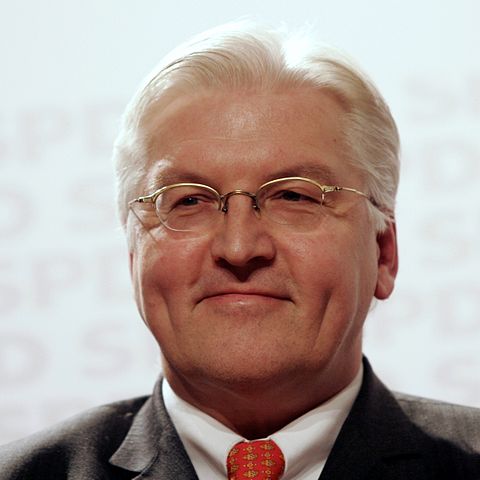
Acknowledging that Germany embraces its responsibility to preserve the memory of the Holocaust, and that this policy has been an integral part of postwar Germany, he said, “But it tests us here and now. This Germany will only live up to itself if it lives up to its historical responsibility.”
Steinmeier pledged to combat antisemitism, protect Germany’s Jewish community and stand with Israel. “Here at Yad Vashem, I renew this promise before the eyes of the world. And I know that I am not alone. Today we join together to say: No to antisemitism! No to hatred!”
Netanyahu delivered a double-barrelled message.
Voicing eternal gratitude “for the sacrifice made by the Allies,” he said,” Without that sacrifice there would be no survivors today.
“But we also remember that … when the Jewish people faced annihilation, the world turned its back on us,” he added in a sober reminder of the mass indifference that greeted the persecution and murder of European Jews in Nazi-occupied countries.”
“For many, Auschwitz is the ultimate symbol of evil,” he went on to say. “It is certainly that. The tattooed arms of those who passed under its infamous gates, the piles of shoes and eyeglasses seized from the dispossessed in their final moments, the gas chambers and crematoria that turned millions of people into ash, all these bear witness to the horrific depths to which humanity can sink. But for the Jewish people, Auschwitz is more than the ultimate symbol of evil. It is also the ultimate symbol of Jewish powerlessness. It is the culmination of what can happen when our people have no voice, no land, no shield.”
